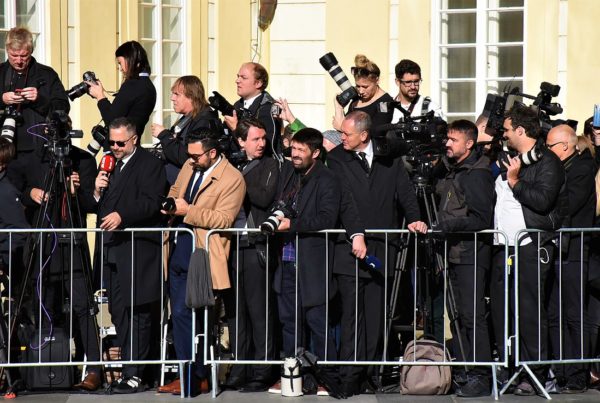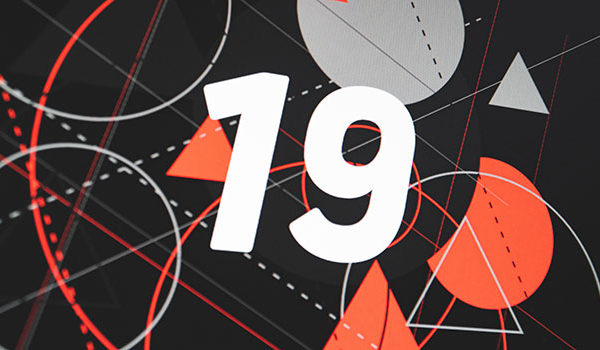(This article was originally published by the Gatestone Institute on July 6, 2016, written by Khaled Abu Toameh. It has been republished with their permission.)
The Palestinian Authority’s recent decision to hold municipal elections on October 8 has sparked fear among Palestinians that the move will lead to even more security chaos and anarchy, especially in the West Bank. The word on the Palestinian street is that the elections will be anything but fair and free.
The decision to hold new elections was taken during a meeting of the Palestinian Authority (PA) government, headed by Prime Minister Rami Hamdallah, on June 21 in Ramallah. The elections are slated to take place in 407 municipalities — 382 in the West Bank and 25 in the Gaza Strip.
The last Palestinian local elections were held in 2012, but only in the West Bank. Hamas, which controls the Gaza Strip, did not participate in those elections. The elections were supposed to be held in 2010, but were delayed for two years because of the continued power struggle between Hamas and Fatah, the ruling faction that dominates the PA in the West Bank.
Hamas has not yet announced its position on the October 8 municipal elections. The Islamic movement’s leaders in the Gaza Strip said this week that they were still debating amongst themselves, and consulting with other Palestinian factions concerning the local elections.
In the past, Hamas justified its decision to boycott the elections by citing the Palestinian Authority’s ongoing crackdown on Hamas supporters and representatives in the West Bank. This security crackdown, Hamas explained, guaranteed that the elections would not be held in a fair and free climate. “How can any Hamas representative run in the elections when the Palestinian Authority is arresting our men every day in the West Bank,” complained a senior Hamas official in the Gaza Strip.
The mounting tensions between the two rival Palestinian parties and the continued PA crackdown on Hamas supporters in the West Bank make it unlikely that the Islamist movement would agree to take part in the October 8 vote.
Following the Palestinian Authority government’s announcement that the elections will be held in October, Hamas said that while it favors the idea, it still has many questions regarding the vote. Hamas spokesmen said that their representatives plan to hold further consultations with leaders of various Palestinian factions, including Fatah, “to ensure the success of the elections and to make sure that they constitute a first step towards ending, and not deepening, the crisis between Hamas and Fatah.
The decade-long dispute between Hamas and Fatah is alive and well. The latest attempt to end the war between the two parties, which took place in Qatar earlier this month, ended in complete failure. The two sides have since been trading allegations, holding each other responsible for the collapse of the “reconciliation” talks. The Palestinian public, meanwhile, appears to have lost confidence in both Fatah and Hamas, particularly in wake of previous failed efforts by the Saudis, Egyptians and Qataris to end the power struggle between the two rival parties.
Palestinian political analysts say that the gap between the two sides remains as wide as ever, given that Hamas continues to resist Fatah demands to relinquish control over the Gaza Strip. Moreover, Hamas continues to demand that its employees in the Gaza Strip be added to the Palestinian Authority’s payroll. Hamas’s refusal to recognize the Oslo Accords between Israel and the PLO is also another stumbling block on the way to achieving “reconciliation” between the two sides. The PA insists that if Hamas wants to join a Palestinian unity government, it must honor all agreements signed between the Palestinians and Israel, including the Oslo Accords.
Some Palestinians are convinced that Hamas is anyway not interested in holding new elections, because it does not want to see a democratic process take place in the Gaza Strip.
Ramzi Rabah, a senior member of the Democratic Front for the Liberation of Palestine (DFLP), said that he would not be surprised at all if Hamas decides to boycott this year’s elections. “Hamas has been hindering the elections for the past nine years,” he charged.
“Hamas wants to corrupt the political and democratic process in the Gaza Strip. Hamas is not interested in any elections. The local councils are there to serve the people. Hamas prefers appointments and control by force and this does not serve the interest of the Palestinians.”
For the PA, the decision to hold new municipal elections is a gigantic gamble.
First, if Hamas does decide to participate in the election, its representatives could easily win in several Palestinian cities and villages, especially in the Hebron area in the southern West Bank, where Hamas has a wide following and is considered more popular than the Palestinian Authority and its Fatah faction. So the PA can only hope that Hamas will decide to avoid the vote. A defeat for Fatah in the municipal elections would have repercussions on future elections for the Palestinian parliament and presidency. The last thing that PA President Mahmoud Abbas and Fatah want is a repeat of the Hamas victory in the 2006 parliamentary election.
 |
Abbas and Fatah have yet to recover from their recent defeat by Hamas in the student council election at Bir Zeit University in the West Bank, in April of this year. Hamas supporters won 25 of the student council seats, as opposed to 21 seats for Fatah. The remaining five seats went to other student groups that are also opposed to Fatah.
Second, the decision to hold the municipal elections was announced at a time when the West Bank is witnessing more and more lawlessness among Palestinians. It seems to some Palestinians that the Palestinian Authority security forces are losing control. Many are worried that the security free-for-all will only increase ahead of the elections, due to heated campaigns and rivalries between different clans and political factions.
The Palestinian territories are filled with weapons; most are being used to settle scores and in family feuds. In one recent violent incident, two Palestinian security officers were gunned down by unidentified assailants in Nablus on June 30. Hours earlier, in a melee that erupted in the town of Ya’bad in the northern West Bank, at least four Palestinians were killed and 15 wounded, seven of them seriously.
After the incidents, Adnan Damiri, spokesman for the PA security forces, admitted that the spread of weapons in the hands of too many Palestinians was helping to drive the security disaster in the West Bank.
A top Fatah official said that the pandemonium in the West Bank signaled the growing weakness of the Palestinian Authority. “How can we talk about free and fair elections when everyone is carrying a pistol and a rifle?” he asked. “The situation has become very dangerous.”
Third, Fatah itself is facing severe infighting. Ghassan Shaka’a, the former mayor of Nablus who belongs to one of the city’s largest and most influential clans, has accused Fatah membersof trying to prevent him from running again in the October elections. Shaka’a’s allegations came shortly after unidentified gunmen fired several shots at his home in Nablus. He said that the attempt on his life was in the context of internecine fighting within Fatah. Shaka’a, who is also a senior PLO official, said that the shooting attack on his home would not deter him from running for mayor once again.
The not-so-simmering tensions in Fatah are likely to explode in the weeks before the October elections, as disgruntled young members of the faction say they are considering running as independent candidates. This situation would be a serious challenge to Fatah’s official candidates in the election and pave the way for deepening divisions between the old guard and young guard. That is precisely how Hamas won the parliamentary elections in 2006: Fatah members ran as independent candidates, playing directly into the hands of Hamas, which ran as a bloc.
Fourth, by holding the elections without Hamas’s participation, the Palestinian Authority will risk further consolidating the split between the West Bank and Gaza Strip — and reinforcing the reality that the Palestinians already have two separate mini states. “It is inappropriate to hold elections before ending the tragic state of division (between the West Bank and Gaza Strip),”said Nash’at al-Aqtash, who teaches political science at Bir Zeit University. “This will only solidify and legitimize the division.”
Noting that no candidate would any dare run as a Hamas representative in the West Bank elections, al-Aqtash also pointed out that Fatah was suffering from divisions that could have “catastrophic repercussions” on its performance. “There are various Fatah groups and camps — some that support President Abbas and others that support (ousted Fatah official) Mohamed Dahlan,” he explained. “Then there are other Fatah groups that are acting independently.”
Perhaps, say some Palestinians, this mess, which is the fault of the Palestinian Authority regime, will force its leaders to indefinitely postpone the elections. Regardless of the particular outcome, the PA’s dispute with Hamas is only headed towards further escalation. And clearly, the current mayhem plaguing the West Bank cities, villages and refugee camps will not help in holding any free and fair elections — not for municipalities, parliament or the presidency.
Finally, even if the Palestinian Authority beats the odds and its own history and does hold the elections, the Palestinian street is convinced that its leaders will in any event steal the vote and install their loyalists. What else, they say, would a proper mafia do?
(To view this article on the Gatestone Institute, please follow this link.)








